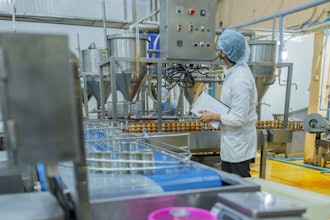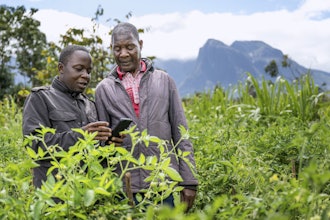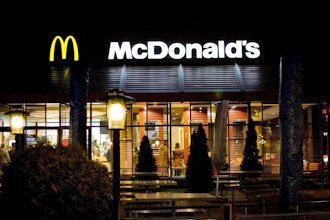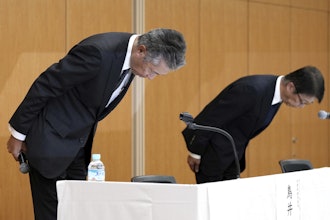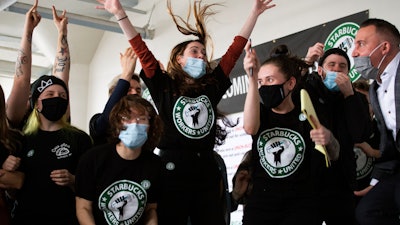
Labor organizers hope this will be the year that Starbucks' U.S. workers finally negotiate a union contract. But with bargaining at a standstill and thousands of employees still unconvinced of the union's value, that outcome is uncertain.
A little more than a year after a Starbucks in Buffalo, New York, became the first U.S. store to unionize in decades — touching off a wave of labor actions at other big companies like Amazon and Chipotle — the rush to organize Starbucks stores has slowed.
Since December of 2021, 358 Starbucks stores have petitioned the National Labor Relations Board to hold union elections. Petition activity peaked last March, when 69 stores asked to hold elections. By November, that had fallen to 13. Eleven stores filed petitions last month.
Labor organizers say Starbucks has chilled the effort with hard-nosed tactics, including firing pro-union workers and closing unionized stores. Starbucks has also promised wage increases and other benefits at non-union stores; the company says those perks are subject to bargaining at unionized stores.
But the union drive also faces resistance from Starbucks' own workers. So far, employees have voted to unionize at 274 stores, or 3% of Starbucks' 9,000 company-owned U.S. locations, according to the labor board. Sixty-three stores have voted not to unionize.
Starbucks barista Jen Langberg said no one at her store in Henderson, Nevada, ever talks about unionizing. She appreciates Starbucks for raising her pay to $15 per hour in August.
"Overall, I've only ever had a very positive experience working for Starbucks," said Langberg, a five-year employee.
Labor organizers say the long wait for Starbucks to negotiate store contracts with Workers United — an offshoot of the Service Employees International Union — is hurting efforts to organize.
"I've talked to partners at stores that haven't unionized and they say, 'I'm going to wait and see what happens,'" said Josie Serrano, a union organizer and Starbucks employee in Long Beach, California. "It's a bummer. We do have to address and fight that."
Contract negotiations at three stores in Buffalo and Arizona began last spring. Since then, bargaining sessions have been held at 75 stores, but Starbucks has walked out on the meetings because it opposes having union officials join by Zoom.
Starbucks says labor organizers are violating the rules by failing to share Zoom links or name remote participants and, in at least two cases, posting recordings from bargaining sessions on social media. The union says Starbucks is reversing itself after initially allowing Zoom negotiations last spring.
In late December, the labor board's Seattle office filed a complaint alleging that Starbucks had failed to bargain with 21 stores in Oregon and Washington. Starbucks blames the union for delays, saying it hasn't responded when Starbucks proposes bargaining dates. A hearing before an administrative law judge at the NLRB is scheduled for June.
Even in less contentious cases, bargaining is a slow process, with no deadline by which a contract must be reached and little intervention by the government unless the parties reach an impasse. Only 35% of overall union elections result in a first contract within a year, according to Kate Bronfenbrenner, the director of labor education research at Cornell University's ILR School. Forty-four percent of workers still don't have a contract more than three years after an election.
Serrano said the wait can be demoralizing, but can also energize workers. Twice in the last two months, hundreds of Starbucks employees have walked off the job at more than 100 stores across the U.S., demanding higher wages, more consistent scheduling and a return to the bargaining table.
Sarah Pappin was among the employees striking outside a store in Starbucks' hometown of Seattle in December. Pappin criticized Starbucks for delaying bargaining and adding benefits like credit card tipping to non-union stores.
"They're choosing to withhold income from people who live paycheck to paycheck, and it's absolutely disgusting," Pappin said.
For Serrano, the drive to unionize is more personal. Shortly after joining the company four years ago, Serrano, who is transgender and uses they/them pronouns, was approached by a customer who made derogatory and threatening comments to them. A supervisor watched but didn't intervene; later, Serrano got a verbal warning from a store manager who was upset that Serrano's coworker reported the incident directly to the company.
"I see unionizing as a way to get written accountability procedures and have the power to say something if Starbucks doesn't want to say the hard part out loud," Serrano said.
But it will still be an uphill battle for organizers to convince thousands of other employees to back their cause.
Nancy Sowul, a Starbucks barista in Cary, North Carolina, said she is sometimes asked by customers at the drive-thru why her store doesn't unionize. To her, the answer is simple.
"I have nothing bad about Starbucks to say. I love my store, I love my manager and I am 100% supportive of the company," Sowul said.
Sowul, a single parent, joined Starbucks nine years ago because she was looking for a part-time job with health benefits that would help her care for her autistic son. Starbucks has always accommodated her son's appointments, she said, and at the height of the pandemic, it paid her salary for six months while she stayed home with him.
In October, Sowul started work toward a free degree through Starbucks' online partnership with Arizona State University. She aims to graduate from college in eight years, when her son will be graduating from high school.
"Every single important part of my life, Starbucks walked through it with me," she said.
















